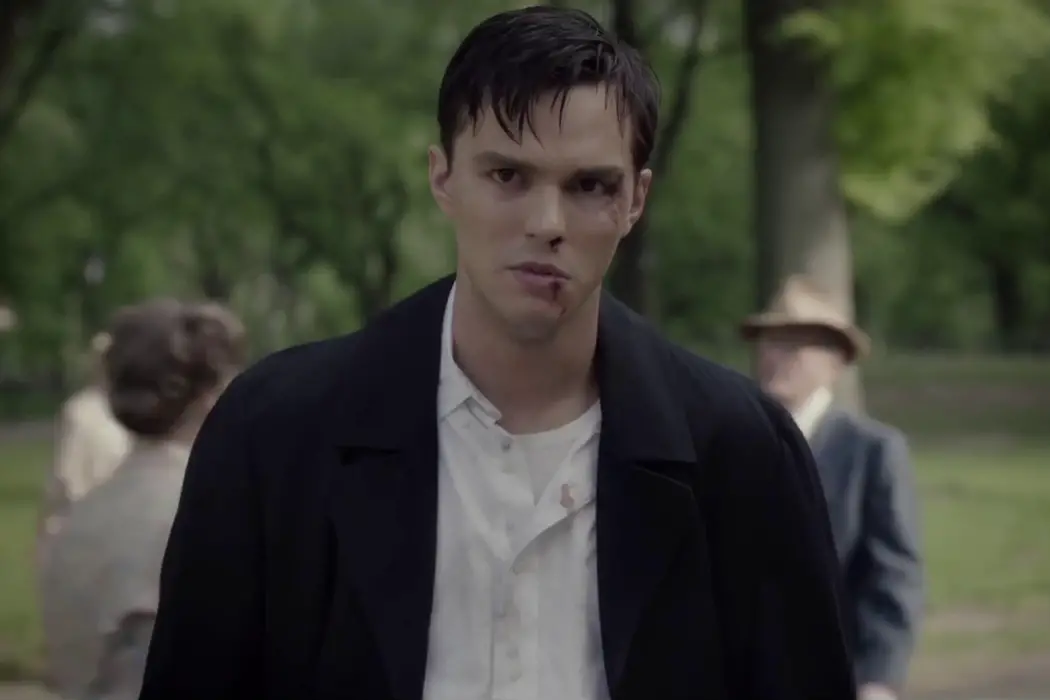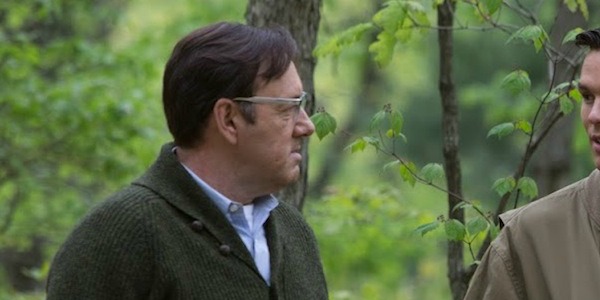REBEL IN THE RYE: An Ambitious Yet Chaotic Biopic

I can quote Parks and Recreation endlessly, I love decaf…
As imperfect as Rebel in the Rye is, I will say this: As somebody who is aiming to become a professional film critic and build a career in writing, Rebel in the Rye is a good reminder of the hardships I will likely face. It shows how getting rejected and having to write as if you’ll never get anything in return are all the name of the game. Not only that, but because the film shows how J.D. Salinger was very driven at a young age and would submit to prolific publications like The New Yorker while he was still in college, I was able to somewhat see myself in Salinger. I’m only 25 and just out of college, but I’m already aiming for my desired career by trying to write every day and writing for as many publications as possible, including this one. Even on days where I don’t publish anything, I can just write a long draft so I can improve my craft.
So, Rebel in the Rye is a reflection of almost every writer looking to make it big, whether they are film critics, authors, screenwriters, etc. But I do wish this film was better and less chaotic than it is.
The Story Behind A Film About An Author
Rebel in the Rye depicts the life of J.D. Salinger (Nicholas Hoult) who wrote the classic novel Catcher in the Rye. The film depicts his life as a student at Columbia University, and how he ambitiously aimed to be a professional writer with the help of his college professor Whit Burnett (Kevin Spacey). It also follows his trauma from his time as a soldier in World War II, his chaotic love life, and his reluctant celebrity.

We even get glimpses of J.D. Salinger staying at a mental hospital accompanied by voiceover narration from Salinger within the first 20 to 30 minutes. But those scenes never really go anywhere, because if you take them out, you still have a handsomely-crafted, coherent telling of Salinger’s life. The film opens with Salinger at a mental hospital, and I was wondering if the film would end there but it doesn’t. The mental hospital scenes are even shot with blue light to give them a raw feel, since the sequences of Salinger in battle in WWII are shot with the same color. Lastly, audiences members like myself unfamiliar with his story might not know when in his life he committed to a mental hospital. It just makes no sense.
Writer/director Danny Strong never really figures out what kind of story he wants to tell. It feels like he doesn’t know whether he wants to make a traditional biopic and recount the events of Salinger’s life in a matter-of-fact manner, or make a biopic that presents the subject’s life story in a more innovative manner by using the aforementioned cinematography to tell the story. While the mental hospital and WWII scenes shot in blue do carry symbolism, the rest of the film is shot in a more basic manner. There’s no kaleidoscopic effect to continue the symbolic use of color.
Actors Bring Mixed Results
Despite playing the famed author, I found Nicholas Hoult’s performance to be pretty off. Despite playing a man who was very reclusive, he does too many nervous tics to demonstrate his reclusiveness, and I even found the brown contact lenses on the naturally blue-eyed actor to be rather distracting. Nicholas Hoult is a terrific actor. See his work in Mad Max: Fury Road, A Single Man, and Warm Bodies for proof. But whatever he was doing here just didn’t work.

However, the supporting actors do salvage some greatness. One actor who stands out is Kevin Spacey as Whit Burnett. Spacey is able to showcase his typical sardonic humor as Salinger’s professor/mentor while also showcasing interesting warmth. Typically, when it comes to films depicting struggling artists, there is an artist being pushed to extreme limits by a headstrong parent or mentor like with Whiplash and Shine. But here, it was refreshing to see a film about an artist who has a mentor that is more nurturing and expresses genuine concern. So kudos to Kevin Spacey for elevating what could’ve been a clichéd role.
Another standout is an actress who is the unsung MVP in pretty much everything that she does: Sarah Paulson. In a supporting role as Salinger’s literary agent Dorothy Olding, Paulson steals each scene she is in with a wry sense of humor, and despite having a small role to the point where she could’ve easily phoned it in, she makes you wish she had more scenes.
Other than Spacey and Paulson, the other actors aren’t given much to work with. Zoey Deutch has a small role as Salinger’s former girlfriend Oona O’Neill, and she is absolutely wasted. I feel like you could take her character out of the film and it would still have the same effect.
Rebel in the Rye: Conclusion
Even though the experience of watching Rebel in the Rye was better than reading Catcher in the Rye, I still found Rebel in the Rye to be an unfortunate misfire. The actors do deliver; even Nicholas Hoult is committed despite his performance being faulty, and it does serve as a reminder of what writers will become faced with. But even those elements couldn’t save this chaotic mess.
What is your favorite biopic? Please feel free to share your thoughts in the comments section.
Rebel in the Rye is currently released in US theaters and its UK release is to be determined.
http://https://www.youtube.com/watch?v=VWRhXMMb7CYDoes content like this matter to you?
Become a Member and support film journalism. Unlock access to all of Film Inquiry`s great articles. Join a community of like-minded readers who are passionate about cinema - get access to our private members Network, give back to independent filmmakers, and more.
I can quote Parks and Recreation endlessly, I love decaf coffee, and in spite of me having two college degrees, I'm still trying to figure out what to do with my life.













